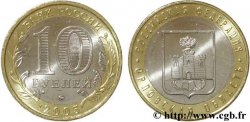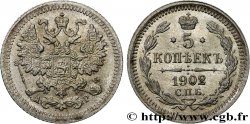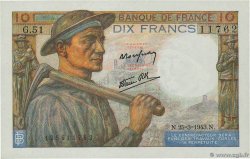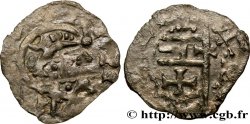fwo_331218 - RUSIA 25 Kopecks aigle bicéphale 1855 Saint-Petersbourg
No disponible.
Artículo vendido en nuestra tienda (2014)
Precio : 145.00 €
Artículo vendido en nuestra tienda (2014)
Precio : 145.00 €
Tipo : 25 Kopecks aigle bicéphale
Fecha: 1855
Nombre del taller / ciudad: Saint-Petersbourg
Cantidad acuñada: 10396000
Metal: plata
Milésimas de pureza : 868 ‰
Diámetro: 24 mm
Eje de acuñación: 12 h.
Peso: 5,21 g.
Canto: décorée
Comentarios sobre el estado de conservación:
Magnifique patine aux reflets bleutés
N° en los catálogos de referencia :
Anverso
Descripción del anverso: Aigle bicéphale héraldique couronné.
Reverso
Comentario
Nicolas Ier (7/07/1796-2/03/1855), second fils de Paul Ier, est le frère d'Alexandre Ier et du grand-duc Constantin. À la mort de son frère Alexandre Ier, le 1er décembre 1825, et après le renoncement de son frère Constantin, il devient tsar de toutes les Russies et commence par réprimer le mouvement libéral des Décembristes puis le soulèvement de Pologne en 1831. Après avoir favorisé la libération de la Grèce, il se pose comme un défenseur des Slaves et s'oppose aux Turcs. Il trouve sur sa route les Anglais et les Français. Il meurt avant la défaite de la guerre de Crimée.
Nicholas I (7/07/1796-2/03/1855), second son of Paul I, is the brother of Alexander I and Grand Duke Constantin. On the death of his brother Alexander I, on December 1, 1825, and after the renunciation of his brother Constantine, he became Tsar of all the Russias and began by repressing the liberal movement of the Decembrists and then the uprising in Poland in 1831. After favoring the liberation of Greece, he poses as a defender of the Slavs and opposes the Turks. He finds on his way the English and the French. He died before the defeat of the Crimean War
Nicholas I (7/07/1796-2/03/1855), second son of Paul I, is the brother of Alexander I and Grand Duke Constantin. On the death of his brother Alexander I, on December 1, 1825, and after the renunciation of his brother Constantine, he became Tsar of all the Russias and began by repressing the liberal movement of the Decembrists and then the uprising in Poland in 1831. After favoring the liberation of Greece, he poses as a defender of the Slavs and opposes the Turks. He finds on his way the English and the French. He died before the defeat of the Crimean War







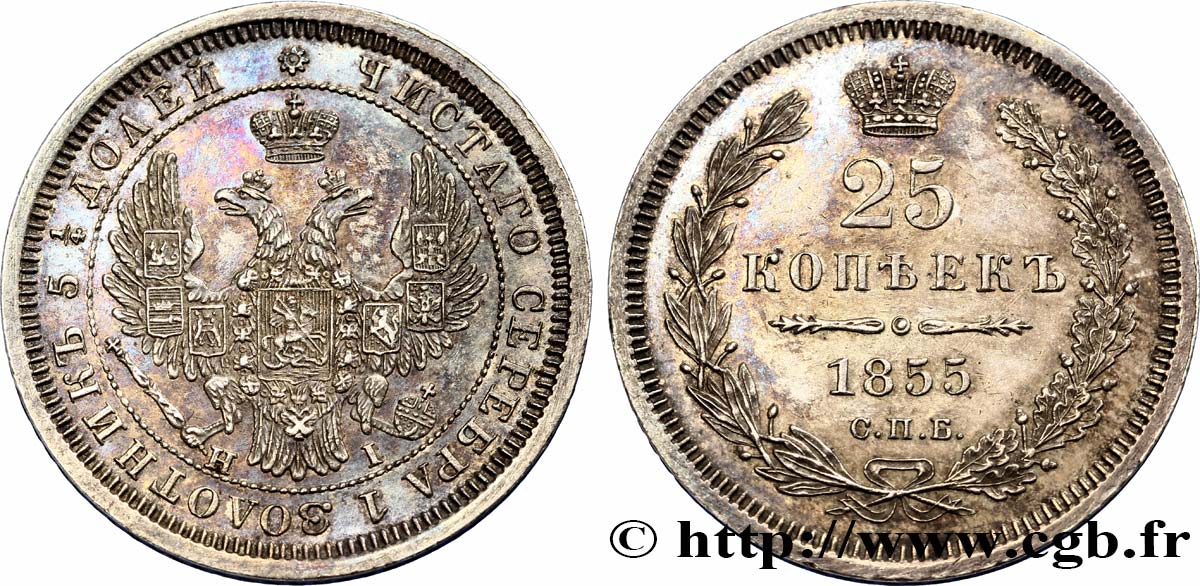
 Informar de un error
Informar de un error Imprimir la página
Imprimir la página Comparte mi selección
Comparte mi selección Haz una pregunta
Haz una pregunta Consignar / vender
Consignar / vender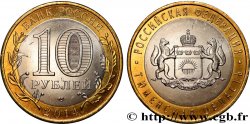
 Descriptivo
Descriptivo
